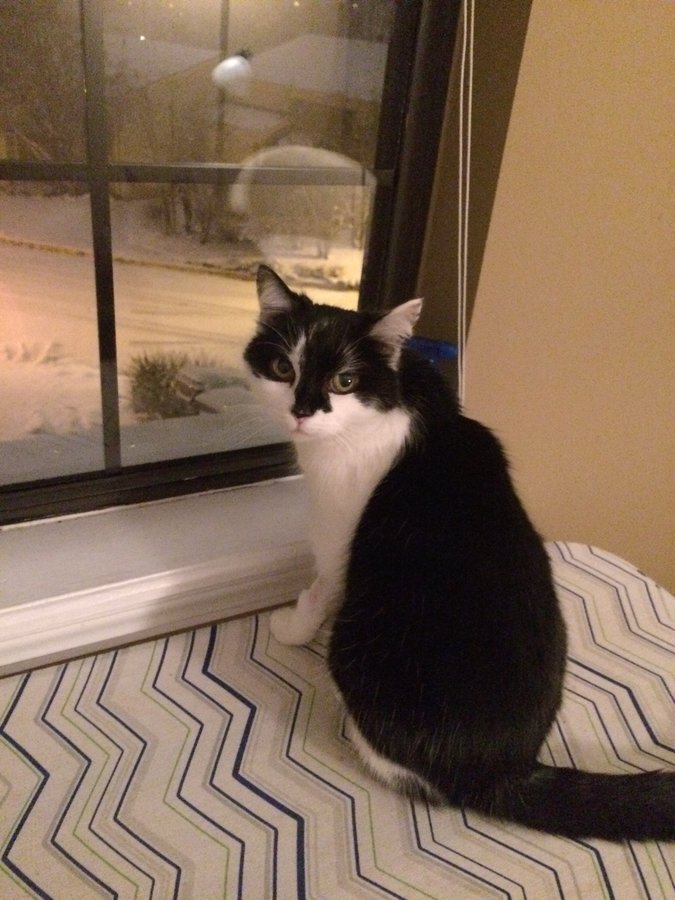- Joined
- Mar 3, 2015
- Messages
- 18
- Purraise
- 3
Hi guys,
First of all, I wanted to say that I posted about 4 months ago for diet suggestions when my 20 year old childhood cat Bella was first diagnosed with CHF, and I received not only some great advice, but some wonderful support from people who have experienced the same, and I wanted to truly say thank you for that.
Since taking Bella in for CHF, I had to go out of town for a work conference in Boston for a whole week. Unfortunately, I had to have friends come by and give her her medication and feed her. She unfortunately stopped eating while I was gone and taking her meds altogether. When I got back, she was in pretty rough shape and was dehydrated and not eating anything. I took her in to get some fluids, and they performed a blood test. As it turns out, not only does she have CHF, but she also has Feline Leukemia and Hyperthyroidism (which, after researching, I'm pretty sure led to the CHF).
She's now seemingly doing 100% better, and is eating to her hearts content when I feed her. However, now I'm a bit lost on what I should be feeding her to meet her unique needs. I know low sodium is important for the CHF, and I've been feeding her only food that measures less than .30% sodium content, which I was recommended in the past. Does anyone have any other suggestions for how to properly balance her diet to address the hyperthyroidism as well? She is constantly crying for food, so I've been trying to feed her a little more. She is about 5 1/2 lbs.. Is feeding her more food for calories more important than worrying about limiting the food for the sake of sodium intake? She is currently on a diuretic (furesomide), an ACE inhibitor (enalapril), and VetMedin.
Thanks in advance.
-Mark
First of all, I wanted to say that I posted about 4 months ago for diet suggestions when my 20 year old childhood cat Bella was first diagnosed with CHF, and I received not only some great advice, but some wonderful support from people who have experienced the same, and I wanted to truly say thank you for that.
Since taking Bella in for CHF, I had to go out of town for a work conference in Boston for a whole week. Unfortunately, I had to have friends come by and give her her medication and feed her. She unfortunately stopped eating while I was gone and taking her meds altogether. When I got back, she was in pretty rough shape and was dehydrated and not eating anything. I took her in to get some fluids, and they performed a blood test. As it turns out, not only does she have CHF, but she also has Feline Leukemia and Hyperthyroidism (which, after researching, I'm pretty sure led to the CHF).
She's now seemingly doing 100% better, and is eating to her hearts content when I feed her. However, now I'm a bit lost on what I should be feeding her to meet her unique needs. I know low sodium is important for the CHF, and I've been feeding her only food that measures less than .30% sodium content, which I was recommended in the past. Does anyone have any other suggestions for how to properly balance her diet to address the hyperthyroidism as well? She is constantly crying for food, so I've been trying to feed her a little more. She is about 5 1/2 lbs.. Is feeding her more food for calories more important than worrying about limiting the food for the sake of sodium intake? She is currently on a diuretic (furesomide), an ACE inhibitor (enalapril), and VetMedin.
Thanks in advance.
-Mark
Last edited:

